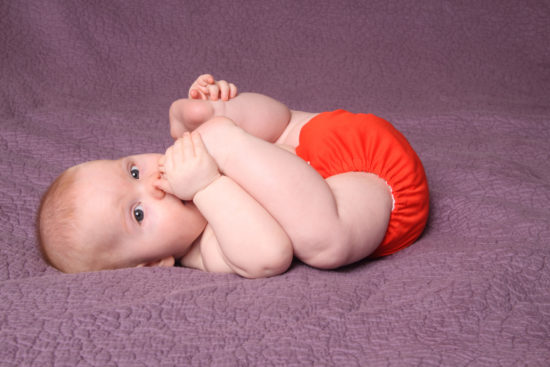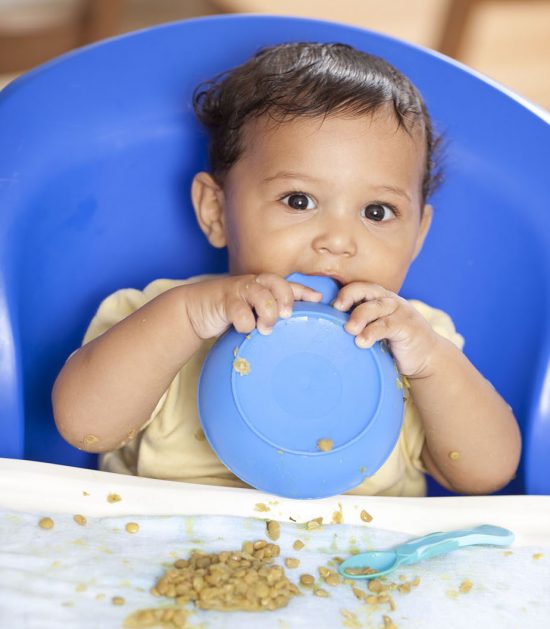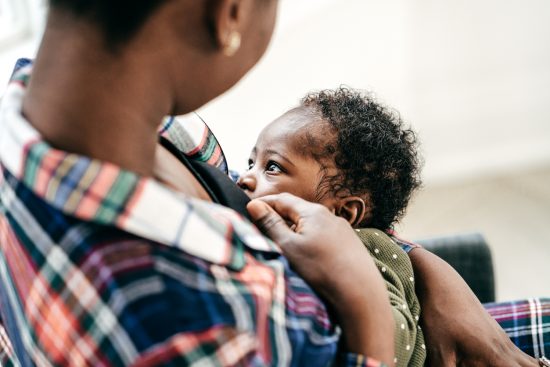Having kids often adds weight to parents’ environmental concerns. From reusable nappies to organic products, here’s how to go green as a parent…
Number one on the list of most new parents’ eco concerns is the 5,000 plus nappies that will go into landfill. Parents throw away an estimated three billion disposable nappies each year in the UK, which is about 2% to 3% of all household waste.

Reusable nappies can feel like an expensive initial outlay but if you keep using them – and especially if you have more than one child – they are a long-term money saver.
Most importantly though, reusable nappies are far, far kinder to the planet, especially if you line dry where possible. If you avoid disposables and opt for reusables, you’ll use an estimated 2.7kg of raw materials instead of 120kg. See our article about choosing the right nappies for you for more information – Reusable nappies or disposable nappies?
This is not only about being green, there are strong links between the air pollution vehicles produce and low birthweight in babies whose mothers breath that air.
Find yourself low-pollution walking or cycling routes with phone apps or maps
So why not ditch the car and find yourself low-pollution walking routes or cycling routes using phone apps or maps.
If you can, walking or cycling using a trailer when your baby is older, is obviously great for you both. If you’re going further afield, pop them in the sling and hop on the bus or train instead.
Once babies are alert, they’ll love looking around anyway and will probably find it much more exciting than the car seat.
When your baby starts on solid food it’s mostly about exploring textures. They’re getting most of their energy from milk feeds in the first year.
Packaged baby food is highly processed, and often contains more sugar and less micronutrients than home-cooked food. This may contribute to poor dental health and being overweight in later childhood.

So you could just mash up whatever you’re eating (unless it’s extremely salty or contains honey etc). Or you could offer them your food in a form they can choose and pick up by themself (baby-led weaning).
Baby-led weaning can involve offering them super simple finger foods, like strips of toast or boiled parsnips and carrots.
If that’s not for you then save on packaging and transportation of packaged baby food by cooking it from scratch instead. And if that makes you roll your eyes at the thought of getting in from work and whipping up a feast, then fair enough.
A much better idea is to batch cook a load of meals so you always have stuff in the freezer ready to go.
Thanks to the energy of our volunteers, lots of our Nearly New Sales are back on! Check out your local NCT Facebook page to see if there’s one near you.
There is so much pressure for your child, nursery or life to look like they’re straight from the grid of an Instagram influencer. But you know what? That doesn’t mean a lot of it can’t come from Freecycle, Ebay, friends or NCT Nearly New Sales.
Buying second hand will save you so much cash at an expensive time. It’s also a good way to give your child a few plastic toys if you want to without bringing yet more plastic into the world. And not only are pre-loved clothes less scratchy on sensitive skin, they also don’t have the chemicals that are found in new baby clothes.
Equally, you don’t need to buy a pile of clothes that you can only wear for a few months when you’re pregnant. It’s much greener to increase the life of existing clothes.
Why not rummage around for your loosest items in the back of the wardrobe, check out your local charity shops, NCT Nearly New Sales or borrow a friend’s maternity wardrobe. If she’s not planning on more children, she’ll probably be delighted to hand you her maternity clothes and save herself a trip to the charity shop.
This is a good practice anyway considering how sensitive babies’ skin is. Try to go for products that contain no potentially harmful man-made chemicals and are made from natural ingredients. You could check sites like the Women’s Environmental Network.
You could even try to clean the air in your house by keeping houseplants. Plants like peace lilies, spider plants and garden mums (yes, they are plants) can improve the air quality of your house. They do this by removing chemicals like formaldehyde from the air.

Making formula uses a lot of water and has a high carbon footprint. Formula is then packaged and transported to you.
So, in breastfeeding you’re making a significant contribution to protecting the environment as well as your family and your own health.
However you feed your baby, we know how physically and emotionally challenging it can be. If you need information or support, give one of our trained breastfeeding counsellors a call on 0300 330 0700 (option 1). You can find further information here.
When you have kids, you go through a lot of cleaning products – especially when they start eating. Oh the mess… So it’s a great idea to either switch to greener cleaning brands or to homemade cleaners. You could make up a batch of homemade cleaner using ingredients like vinegar, lemon juice and baking soda.
Ditch supermarket packaging and transport costs and dig a little veggie patch, or get yourself on the list for an allotment. Turn growing fruit and vegetables into a family hobby and you’re winning all round.
Instead of buying them an extra plastic toy to amuse them, make something together using an old egg box or cardboard cereal box. Bonus: making it will entertain them for a while too…
Our support line offers practical and emotional support with feeding your baby and general enquiries for parents, members and volunteers: 0300 330 0700.
You might find attending one of our Early Days groups helpful as they give you the opportunity to explore different approaches to important parenting issues with a qualified group leader and other new parents in your area.
Make friends with other parents-to-be and new parents in your local area for support and friendship by seeing what NCT activities are happening nearby.